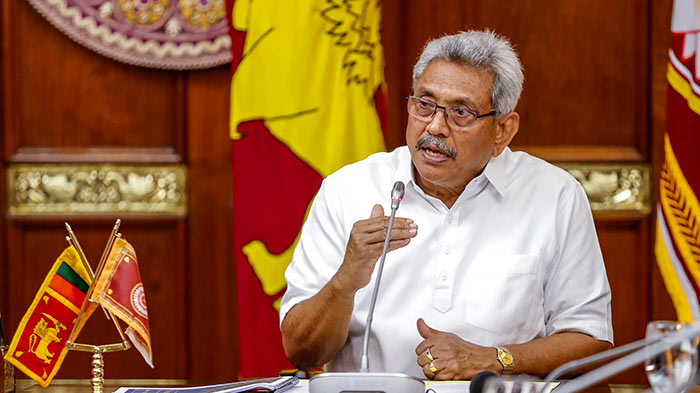President stresses need for educational reforms

President Gotabaya Rajapaksa has emphasized the need to reform the country’s education system in order to create a citizen who can optimally contribute to the future world, the economy and development.
The Universities should not simply be a degree-awarding institution. The President points out that the country, the economy as well as the graduates themselves should benefit from this. He urged the education authorities to introduce a new curriculum as soon as possible, giving priority to practical needs.
The President made these remarks during a discussion held at the Presidential Secretariat today (24) on the future activities of the State Ministry of Education Reforms Open Universities & Distance Learning Promotion.
President Rajapaksa stated that the current labour market discrepancies have occurred due to the fact that educational reforms that suit the country have not taken place for many years. There exist a large number of job vacancies in various fields in the country as well as internationally. But the education system has not created the manpower needed for the modern world.
‘In order to make the future generation of the country productive citizens, they must be enriched with new knowledge, skills and abilities. A clear roadmap should be drawn up from pre-school to higher education level to ensure that young people do not get lost in the field of education. It can increase the opportunities for technical education and expand the use of technology in the educational process. All institutions related to education were brought under one Ministry to achieve this objective,’ the President said.
President emphasized that it is every child’s right to have an equal opportunity in education irrespective of their ethnic and religious differences and added that it is the government’s responsibility to raise a productive citizen to the country.
New reforms should create a background to facilitate access to education for the children who were left behind to reach their expected academic destination without age restrictions. President proposed the practical implementation of a student-centric education system instead of the existing exam centric education.
The immediate obligation of an education system is to facilitate graduation for all the students who are eligible to enter universities and make the job market reaches out for graduates instead of them taking to streets demanding job opportunities were discussed in length.
The university enrolment has been increased from 31,000 to 41,000 in the next year. Open University will enrol an additional 10,000 students to their branches. The plans have been devised to register 10,000 individuals to follow degrees in Information Technology. It was also discussed to adopt different eligibility criteria unique to each university which is the practice adopted by developed countries for university entry, at the meeting.
President Rajapaksa advised the officials to expedite the review process of the already drafted National Education Policy and implement it accordingly.
Minister Prof. G.L. Pieris, State Minister Susil Premajayantha, Head of the Presidential Task Force for Economic Revival Mr.Basil Rajapaksa, Secretary to the President P.B. Jayasundera, Secretaries to the Cabinet and State Ministries and Heads of the Line Institutes were present at the discussion.
(President’s Media)
Latest Headlines in Sri Lanka
- Sri Lanka extends support to businesses impacted by Cyclone Ditwah January 28, 2026
- Sri Lanka warns it may regulate social media after school video incident January 28, 2026
- Sri Lanka begins major school reorganization program January 28, 2026
- Sri Lanka to rebuild all religious sites damaged by Cyclone Ditwah, says President January 27, 2026
- Sri Lanka Parliament launches weekly probe into 323 uninspected containers January 27, 2026



Ok another good idea. But how are you going to implement it? Give me a full report. So many things you promised to rectify. At the moment only talk but no action.
Please stop reading paragraphs for ‘Visions of Prosperity and Splendor’ every day.
It is rather boring.
By the way, not even one line from ‘Visions of Prosperity and Splendor’ has been implemented in the 1st year of your office.
Agree with you Leila,
Not even one line has been implemented effectively in one year.
Leaders are going around barking commands at public servants who are deaf.
This man got so many “manthera” but none works.